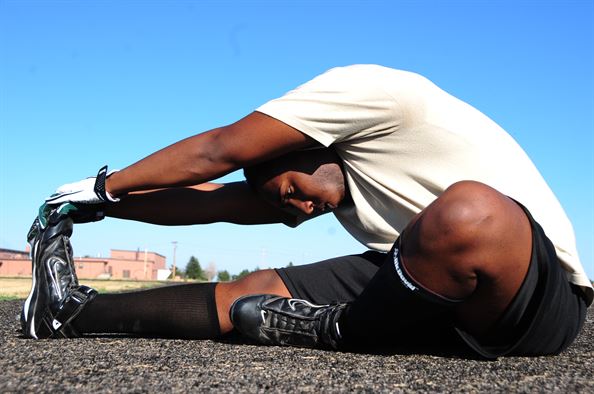The Effect of Stretching within a Warm-up Protocol on Athletic Performance
Stretching, which is performed by many, seems to be controversy. Traditionally, stretching is recommended before performing an exercise to enhance performance or reduce injuries. However, static stretching, which involves holding a stretch position for several seconds to minutes have been found in several research studies to impair athletes performance. Movement and fitness experts nowadays recommend against static stretching before exercise but promote dynamic stretching.
However, the research is also inconclusive, another study shows that static stretching only impairs performance or inhibit the ability to generate power, if the stretch was held for more than 60 seconds and then immediately became fully active, with no warm-up.
Now, research from Edith Cowan University in Australia examined the effects of static and dynamic stretching routines when performed as part of a comprehensive warm-up. The study was published in the June 2019 edition of Medicine & Science in Sports & Exercise,
The study recruited 20 male team sports athletes in a randomized, controlled, crossover study design with experimenter blinding. On separate days, the athlete completed a comprehensive warm-up routine with a few minutes of easy jogging. This is followed by stretching, and then an additional 15 minutes of increasingly intense sprinting, jumping, zigzagging and other moves. During the four days of the experiment, only the stretching changed during these warm-ups. The stretches are
- Day1: 5-second static stretch,
- Day 2: 30-sec static stretch (3 × 10-sec stretches),
- Day 3: 5-repetition (per muscle group) dynamic stretch,
- Day 4: no-stretch.
Stretches were done on seven lower body and two upper body regions. This was followed by test-specific practice progressing to maximum intensity. The athletes then completed in a random order series of test assessing the stretch effect expectations as well as flexibility, vertical jump, sprint running, and change of direction outcomes.
The results show that there were no effects of stretch condition on test performances. The athletes were just as swift, agile, powerful and lithe whether that stretching had been static or dynamic or when they did no stretches.
There was no placebo effect. Before the study, 18/20 participants nominated dynamic stretching as the most likely to improve performance and 15/20 nominated no stretching as least likely. Immediately before testing, no stretching was rated less “effective” (4.0 ± 2.2 on a 10-point scale) than other forms of stretch (5.3–6.4). Nonetheless, these ratings were not related to testing performances.
The authors concluded that participants felt they were more likely to perform well when stretching was performed as part of the warm-up, irrespective of stretch type. However, no effect of muscle stretching was observed on flexibility and physical function compared with no stretching.
The authors added that based on the current evidence, the inclusion of short durations of either static or dynamic stretching is unlikely to affect sprint running, jumping, or change of direction performance when performed as part of comprehensive physical preparation. Nevertheless, this was a short-term study and included only fit young men who play team sports.

